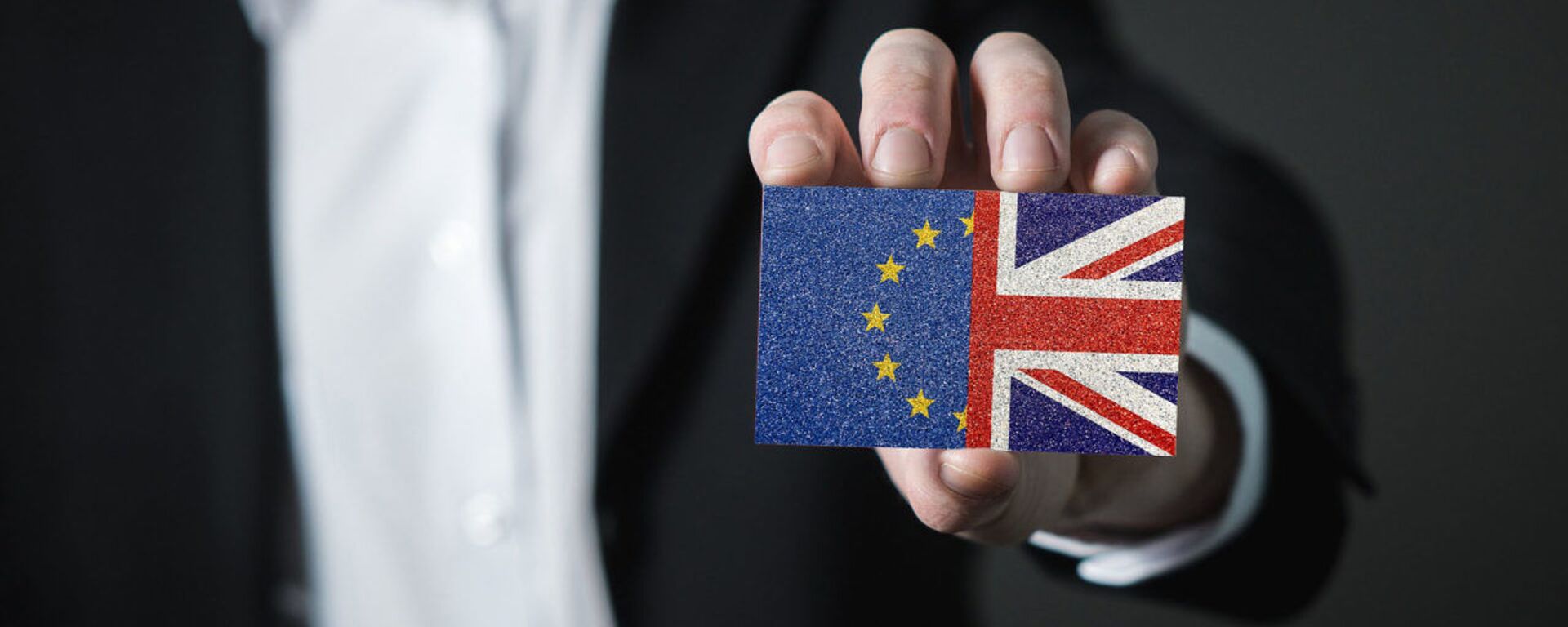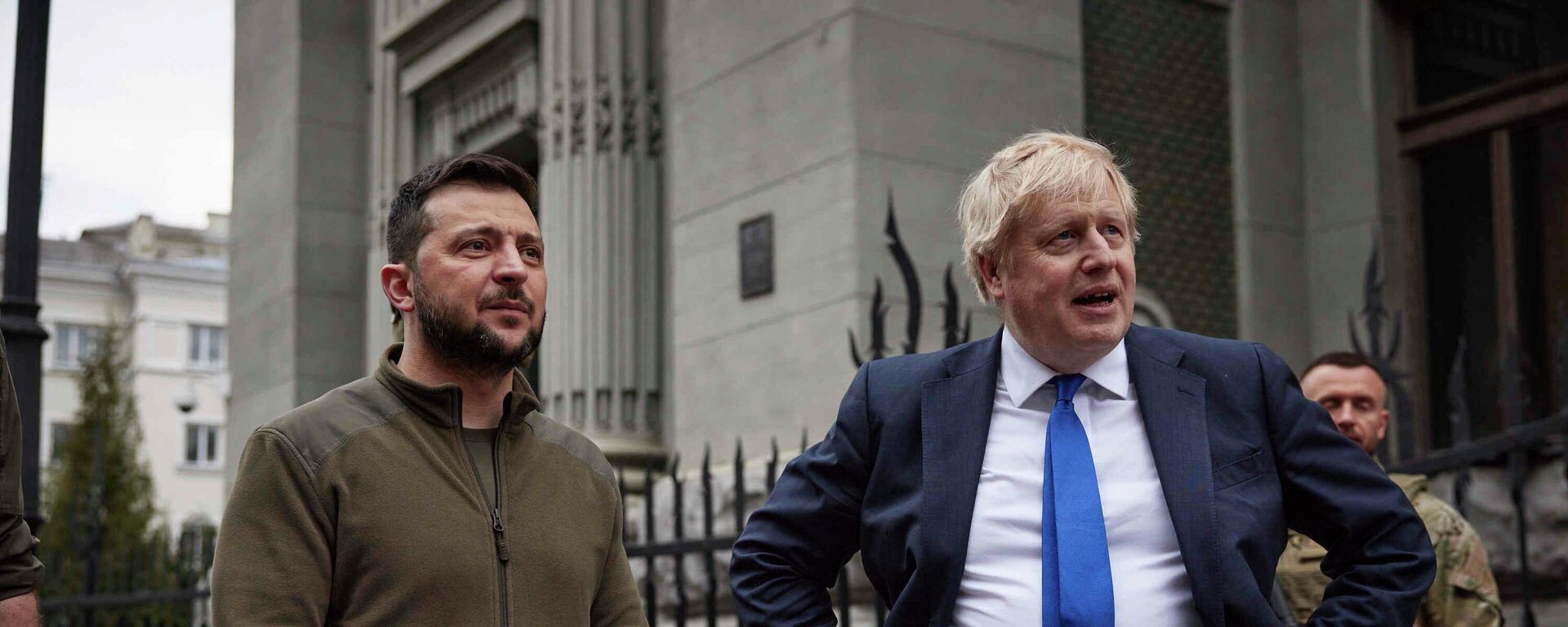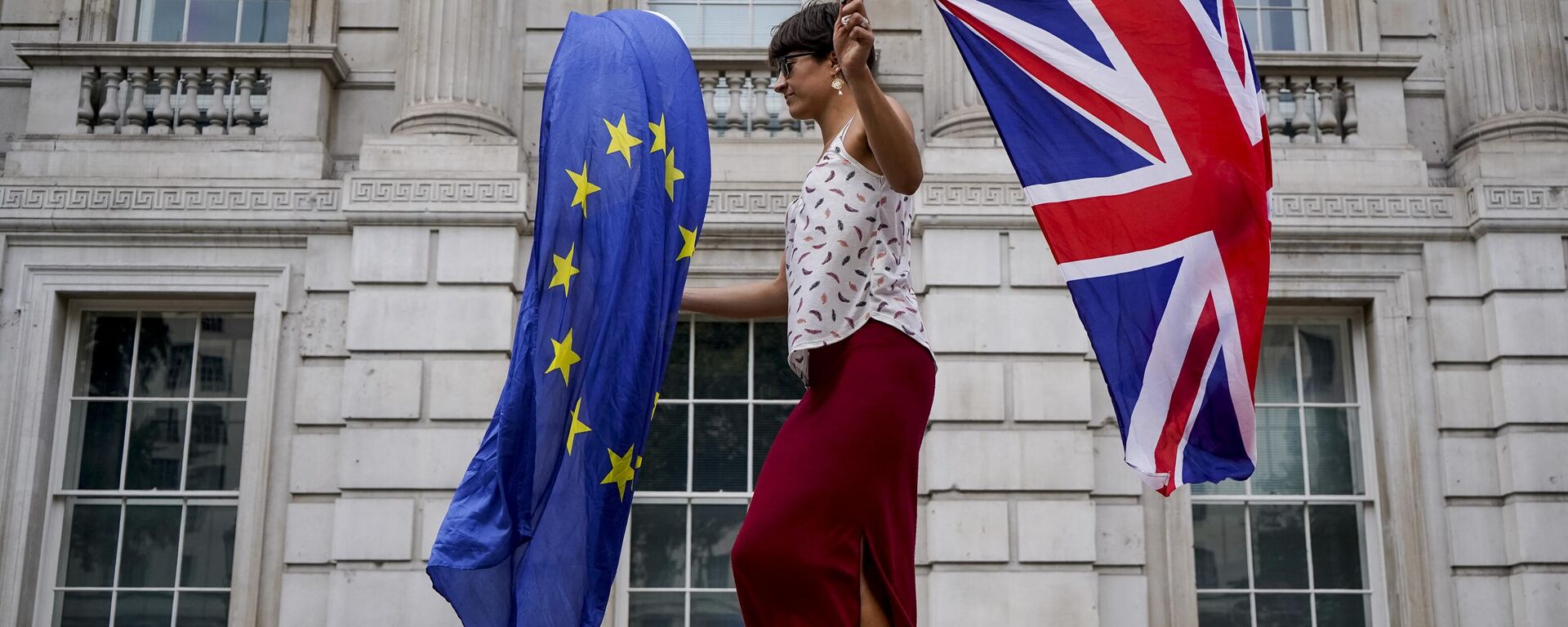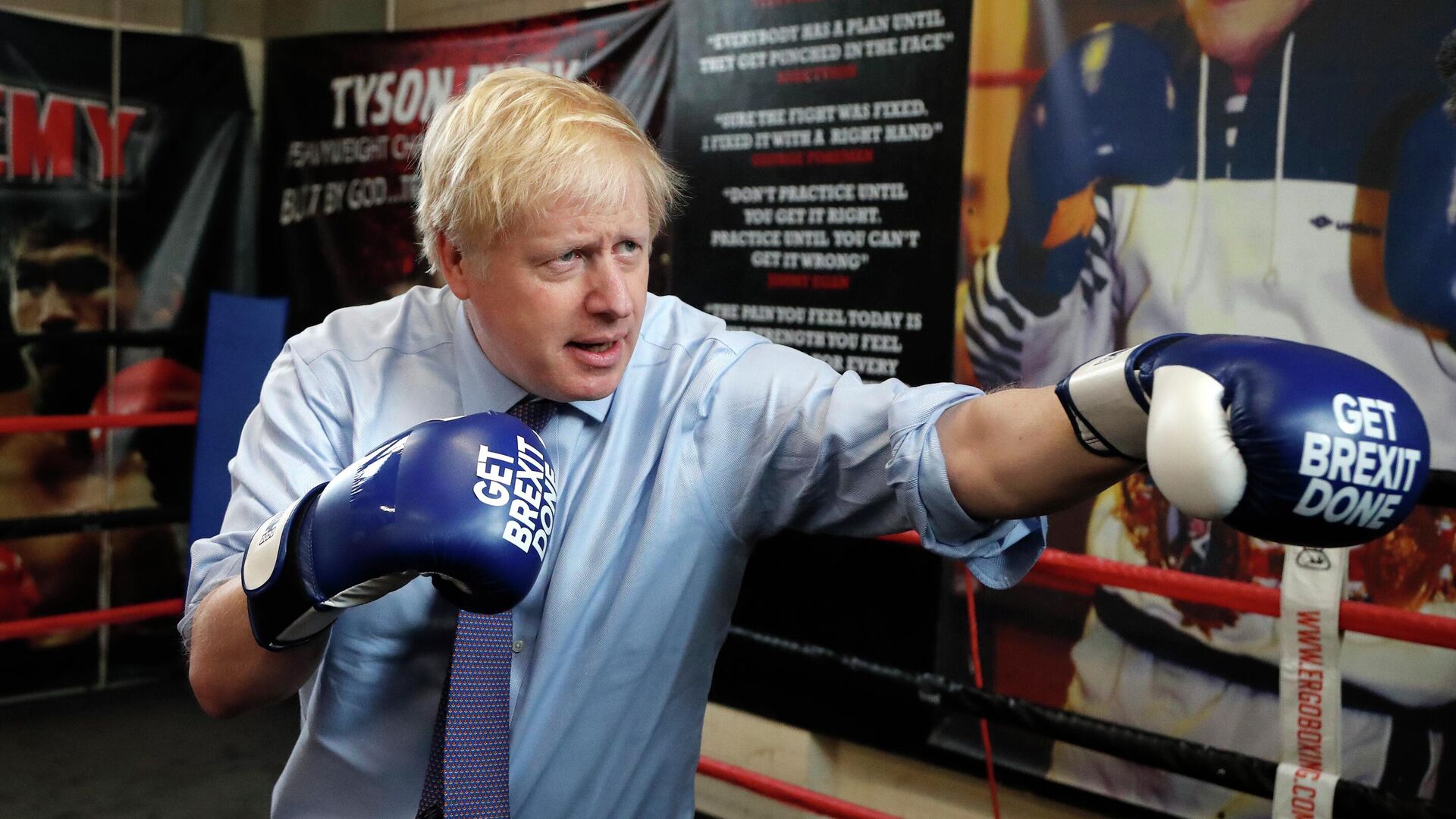https://sputnikglobe.com/20230131/three-years-on-from-brexit-what-has-changed-in-the-uk-1106849995.html
Three Years on From Brexit, What Has Changed in the UK?
Three Years on From Brexit, What Has Changed in the UK?
Sputnik International
Today marks the third anniversary of the Britain's formal departure from the European Union. But how much has the UK changed since leaving the Brussels bloc, and has it yet succeeded in forging its own path?
2023-01-31T15:25+0000
2023-01-31T15:25+0000
2023-05-28T15:25+0000
britain
great britain
brexit
boris johnson
european union (eu)
brussels
sputnik explains
northern ireland protocol
united kingdom (uk)
https://cdn1.img.sputnikglobe.com/img/07e6/07/07/1097047942_0:0:2869:1614_1920x0_80_0_0_8aaaac0549d456ec1dcdee36aa72c4c9.jpg
Britain's exit from the European Union (EU) at the end of January 2020 was the culmination of a fierce political battle that had been waging since before it joined the bloc in 1993.The 2016 referendum, in which 17.3 million Britons voted to leave the increasingly super-state-like bloc, was bitterly contested. Remain campaigners almost immediately claimed dishonesty on the party of the Leave campaign and even nefarious 'Russian meddling'.After pro-Brexit Boris Johnson became prime minister in July 2019, Europhiles within the ruling Conservative Party united with the opposition in a bid to derail the process even as talks on a post-withdrawal agreement entered their final leg.But how much has Britain changed since then? Famous top-hatted Remain protester Steve Bray is still bray-ing outside the Houses of Parliament, and Nigel 'Mr Brexit' Farage is still a major media figure with his own show on GB News — a channel set up to appeal to Brexiteers.Conservative MP John Redwood, one of the leading voices for Brexit, wrote last week that there had already been "wins", but "the government needs to do more to exercise the Brexit freedoms we have gained."Redwood argued that the "wild pessimism" of the Remain camp was proven unfounded, pointing to the scores of bilateral commerce deals swiftly struck with non-EU nations by then-trade minister Liz Truss and the continued growth in exports to the rest of the world.Like Johnson, Redwood pointed to the rapid roll-out of COVID-19 vaccines in the UK from December 2020, leaving the effort organised centrally by the European Commission in the dust and prompting commission President Ursula von der Leyen to embark on the ill-fated 'vaccine war'. Redwood also pointed to the AUKUS military pact with the US and Australia — which saw France jilted out of a submarine deal with Canberra — and argued the 'Five Eyes' intelligence-sharing group that also includes Canada and New Zealand had been strengthened. Military TiesThe UK remained a member of military alliance NATO, long considered synonymous with the EU, when it left the bloc. If anything, London has drawn closer to Brussels since the launch of Russia's military operation in Ukraine as the west imposed sanctions on Moscow while eagerly arming Kiev.Ironically, it was Johnson who played a leading role in forging 'European unity' on economic warfare and military aid, far more than Joe 'I'm Irish' Biden who opposed Brexit. BoJo alternately schmoozed EU leaders then turned on the emotional blackmail on his frequent trips to Kiev, claiming to have seen evidence of war crimes.Johnson caused a minor diplomatic spat after leaving office when he revealed that the governments of France, Germany and Italy had initially resisted the sanctions regime for "sound economic reasons". But that has done nothing to dent the cheek-by-jowl relationship between the UK and EU, whose economies are now firmly lashed together and sinking as one.No Cause for Celebration?Mark Garnett, a politics professor at Lancaster University, took a more negative view, claiming that "supporters of Brexit are finding it difficult to identify any reasons for celebration."He dismissed Redwood's arguments about the COVID-19 vaccines roll-out and downplayed the significance of global trade, insisting that "the benefits of these agreements have been minimal."The academic pointed to a new poll that found a majority believed leaving the EU was a mistake — but conceded that "there is no great public appetite for re-joining the EU."That left the leaders of the two big parties, the Tories and Labour, with "the task of persuading the people that, at some point in the future, the supposed opportunities opened up by Brexit could still lead to greater national prosperity."Protocols and BordersWhat has certainly not changed is the row over Ireland's place in post-Brexit relations between the UK and EU. The republic of Ireland, still a member of the Brussels bloc, shares a land border with the British exclave in Northern Ireland.While most commerce between the two countries — and onwards to the continent — goes by sea through the port of Dublin, Brussels claimed it was worried Northern Ireland could become a 'back door' for British goods to enter unregulated. At the same time, Dublin insisted that any customs checks on the country roads that cross the border would be a breach of the 1999 Belfast Agreement that ended three decades of sectarian terrorism. The compromise was the Northern Ireland Protocol tacked onto the UK-EU withdrawal agreement. That kept the 'six counties' within the EU's common market along with the republic, but erected a customs barrier between Northern Ireland and mainland Britain.The result has been an increase in red tape for businesses and an effective ban on the import of certain goods, such as British sausages and potted plants, prompting protests and outbreaks of unrest in unionist communities. Downing Street has mooted invoking article 16 of the protocol to bring in emergency measures in a bid to bring a an adamant Brussels back to the negotiating table.Irish academic Dr Roslyn Fuller, director of the non-profit think tank Solonian Democracy Institute, told Sputnik that after Britain, Ireland had been most affected by Brexit.Fuller believes Brexit appealed to British voters who were "seeking a return to politics that worked for the average person and improved the standard of living." She pointed out that Both Johnson and former Labour opposition leader Jeremy Corbyn both campaigned on platforms of popular power "with great success." But with both Corbyn and Johnson since brought down by media campaigns against them, power has "returned to a rather elitist candidate Rishi Sunak.""I would have loved to see Brexit followed by a renewed national politics in the UK that improved pay for the average worker, regulated foreign investment in finance and real estate and re-nationalized some basic infrastructure around transportation and energy," Fuller said. "However, I also didn't believe that would automatically happen as a result of Brexit. That would require a sustained effort."Sweet OblivionBy contrast, Alistair Jones, associate professor of politics at De Montfort University in the UK, thinks most Britons are "oblivious of this date."Jones argued that little has really changed. He said the UK was now in the same boat as the US, Russia, China, Australia and New Zealand when it came to trading with the EU, by having to prove its goods conform to the bloc's standards.He held up a report by think-tank the Institute for Government — which is independent of the government — that the British economy had contracted by four per cent more than could solely be blamed on the pandemic. Jones also singled out the British dairy industry, saying it had suffered from attempts to diversify its markets for cheese outside the EU.
https://sputnikglobe.com/20230101/life-outside-the-bloc-how-did-brexit-take-place-1105977616.html
https://sputnikglobe.com/20221123/johnson-admits-sound-economic-reasons-for-wanting-ukraine-to-surrender-1104575858.html
https://sputnikglobe.com/20230124/prospects-of-brexit-deals-renegotiation-slim---report---1106638764.html
britain
great britain
brussels
united kingdom (uk)
Sputnik International
feedback@sputniknews.com
+74956456601
MIA „Rosiya Segodnya“
2023
James Tweedie
https://cdn1.img.sputnikglobe.com/img/07e4/08/1c/1080307270_0:3:397:400_100x100_80_0_0_7777393b9b18802f2e3c5eaa9cbcc612.png
James Tweedie
https://cdn1.img.sputnikglobe.com/img/07e4/08/1c/1080307270_0:3:397:400_100x100_80_0_0_7777393b9b18802f2e3c5eaa9cbcc612.png
News
en_EN
Sputnik International
feedback@sputniknews.com
+74956456601
MIA „Rosiya Segodnya“
Sputnik International
feedback@sputniknews.com
+74956456601
MIA „Rosiya Segodnya“
James Tweedie
https://cdn1.img.sputnikglobe.com/img/07e4/08/1c/1080307270_0:3:397:400_100x100_80_0_0_7777393b9b18802f2e3c5eaa9cbcc612.png
uk, european union, eu, brexit, boris johnson, anniversary
uk, european union, eu, brexit, boris johnson, anniversary
Three Years on From Brexit, What Has Changed in the UK?
15:25 GMT 31.01.2023 (Updated: 15:25 GMT 28.05.2023) Today marks the third anniversary of the Britain's formal departure from the European Union. But how much has the UK changed since leaving the Brussels bloc, and has it yet succeeded in forging its own path?
Britain's exit from the European Union (EU) at the end of January 2020 was the culmination of a fierce political battle that had been waging since before it joined the bloc in 1993.
The 2016 referendum, in which 17.3 million Britons voted to leave the increasingly super-state-like bloc, was bitterly contested. Remain campaigners almost immediately claimed dishonesty on the party of the Leave campaign and even nefarious '
Russian meddling'.

1 January 2023, 15:30 GMT
After pro-Brexit
Boris Johnson became prime minister in July 2019, Europhiles within the ruling Conservative Party united with the opposition in a bid to derail the process even as talks on a post-withdrawal agreement entered their final leg.
But how much has Britain changed since then? Famous top-hatted Remain protester Steve Bray is still bray-ing outside the Houses of Parliament, and Nigel 'Mr Brexit' Farage is still a major media figure with his own show on GB News — a channel set up to appeal to Brexiteers.
Conservative MP
John Redwood, one of the leading voices for Brexit, wrote last week that there had already been "wins", but "the government needs to do more to exercise the
Brexit freedoms we have gained."
Redwood argued that the "wild pessimism" of the Remain camp was proven unfounded, pointing to the scores of bilateral commerce deals swiftly struck with non-EU nations by then-trade minister Liz Truss and the continued growth in exports to the rest of the world.
Like Johnson, Redwood pointed to the rapid roll-out of COVID-19 vaccines in the UK from December 2020, leaving the effort organised centrally by the European Commission in the dust and prompting commission President Ursula von der Leyen to embark on the ill-fated
'vaccine war'. Redwood also pointed to the
AUKUS military pact with the US and Australia — which saw
France jilted out of a submarine deal with Canberra — and argued the 'Five Eyes' intelligence-sharing group that also includes Canada and New Zealand had been strengthened.
The UK remained a member of military alliance NATO, long considered synonymous with the EU, when it left the bloc. If anything, London has drawn closer to Brussels since the launch of Russia's military operation in Ukraine as the west imposed sanctions on Moscow while eagerly arming Kiev.
Ironically, it was Johnson who played a leading role in forging 'European unity' on economic warfare and military aid, far more than Joe 'I'm Irish' Biden who opposed Brexit. BoJo alternately schmoozed EU leaders then turned on the emotional blackmail on his frequent trips to Kiev, claiming to have seen evidence of war crimes.
Johnson caused a
minor diplomatic spat after leaving office when he revealed that the governments of France, Germany and Italy had initially resisted the sanctions regime for "sound economic reasons". But that has done nothing to dent the cheek-by-jowl relationship between the UK and EU, whose economies are now firmly lashed together and
sinking as one.
No Cause for Celebration?
Mark Garnett, a politics professor at Lancaster University, took a more negative view, claiming that "supporters of Brexit are finding it difficult to identify any reasons for celebration."
He dismissed Redwood's arguments about the COVID-19 vaccines roll-out and downplayed the significance of global trade, insisting that "the benefits of these agreements have been minimal."
"Morale in the country is as low as it has been since the 1970s, and many public sector workers are taking industrial action in response to a decade of falling living standards," Garnett told Sputnik.
The academic pointed to a new poll that found a majority believed leaving the EU was a mistake — but conceded that "there is no great public appetite for re-joining the EU."
That left the leaders of the two big parties, the Tories and Labour, with "the task of persuading the people that, at some point in the future, the supposed opportunities opened up by Brexit could still lead to greater national prosperity."

23 November 2022, 15:43 GMT
What has certainly not changed is the row over Ireland's place in post-Brexit relations between the UK and EU. The republic of Ireland, still a member of the Brussels bloc, shares a land border with the British exclave in Northern Ireland.
While most commerce between the two countries — and onwards to the continent — goes by sea through the port of Dublin, Brussels claimed it was worried Northern Ireland could become a 'back door' for British goods to enter unregulated. At the same time, Dublin insisted that any customs checks on the country roads that cross the border would be a breach of the 1999 Belfast Agreement that ended three decades of sectarian terrorism.
The compromise was the Northern Ireland Protocol tacked onto the UK-EU withdrawal agreement. That kept the 'six counties' within the EU's common market along with the republic, but erected a customs barrier between Northern Ireland and mainland Britain.
The result has been an increase in red tape for businesses and an effective ban on the import of certain goods, such as British sausages and potted plants, prompting protests and outbreaks of unrest in unionist communities. Downing Street has mooted invoking article 16 of the protocol to bring in emergency measures in a bid to bring a an adamant Brussels back to the negotiating table.
Irish academic Dr Roslyn Fuller, director of the non-profit think tank Solonian Democracy Institute, told Sputnik that after Britain, Ireland had been most affected by Brexit.
"Prior to that, many people here shopped online for British goods, but customs charges for the average consumer have certainly encouraged us to buy Irish more," Fuller said. But she stressed that "the fears that Brexit would instantly prompt us to devolve into extreme violent civil strife were typically overblown media hype."
Fuller believes Brexit appealed to British voters who were "seeking a return to politics that worked for the average person and improved the standard of living." She pointed out that Both Johnson and former Labour opposition leader Jeremy Corbyn both campaigned on platforms of popular power "with great success." But with both Corbyn and Johnson since brought down by media campaigns against them, power has "returned to a rather elitist candidate Rishi Sunak."
"I would have loved to see Brexit followed by a renewed national politics in the UK that improved pay for the average worker, regulated foreign investment in finance and real estate and re-nationalized some basic infrastructure around transportation and energy," Fuller said. "However, I also didn't believe that would automatically happen as a result of Brexit. That would require a sustained effort."

24 January 2023, 10:09 GMT
By contrast, Alistair Jones, associate professor of politics at De Montfort University in the UK, thinks most Britons are "oblivious of this date."
He told Sputnik whatever problems may have arisen from Brexit, have been "subsumed in the pandemic and in the global economic crisis."
Jones argued that little has really changed. He said the UK was now in the same boat as the US, Russia, China, Australia and New Zealand when it came to trading with the EU, by having to prove its goods conform to the bloc's standards.
He held up a report by think-tank the Institute for Government — which is independent of the government — that the British economy had contracted by four per cent more than could solely be blamed on the pandemic. Jones also singled out the British dairy industry, saying it had suffered from attempts to diversify its markets for cheese outside the EU.







